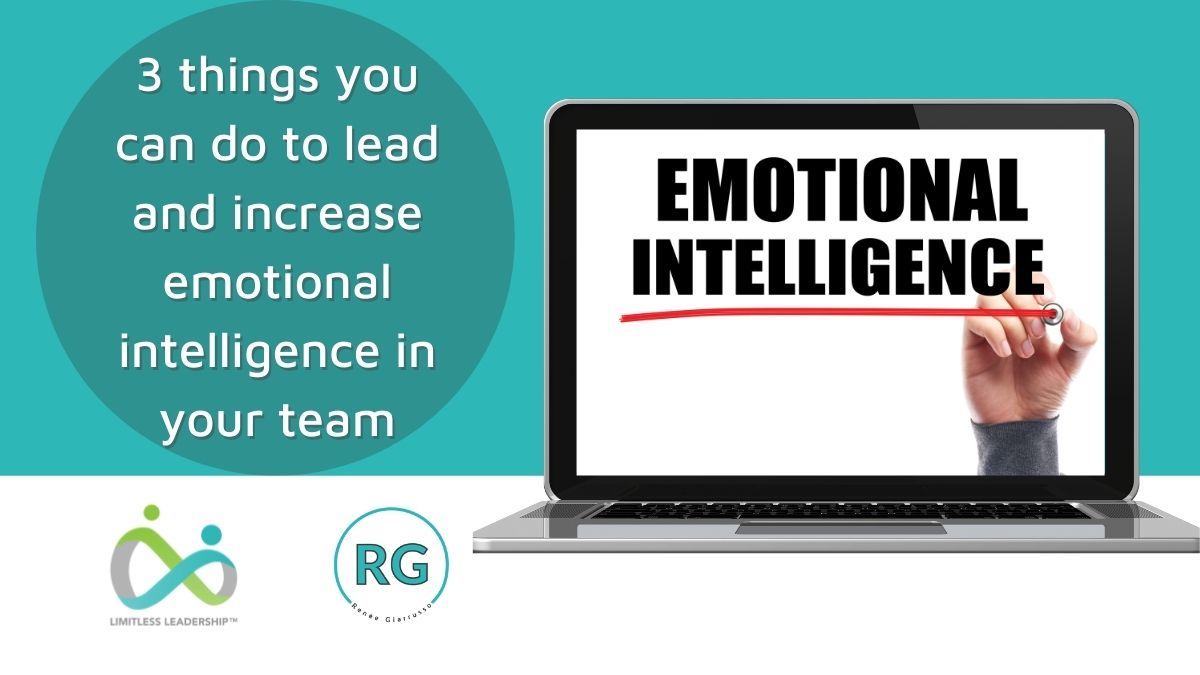Emotional Intelligence (EI) is imperative
Emotional Intelligence (EI) is imperative to any role, team or organisation. And having the ability to focus on transferring EI and motivation to your team is even more critical as we all continue to work and lead in this hybrid environment.
EI, also known as emotional quotient or EQ, is simply the ability to recognise one’s own emotions and those of others and to have the ability to be able to manage them. There are several steps that you can undertake to aid this. First things first – ensure your awareness of self and others is high.
If you want to lead and assist in increasing EI, you need to lead by example.
Really master your conflict management, emotional control and social awareness, so you’re not just aware and managing your emotions, but also understanding that of others and demonstrating this, day to day, to your team and those around you.
As a leader, I truly believe you can create the necessary conditions in which team members can develop their EI. However, each member of the team needs to take ownership of this.
There’s an analogy that says, ‘A piano student can be taught to play Minuet in G, but he won’t become a modern-day Bach without knowing music theory and being able to play with heart.’
There needs to be trust within the team and in you and a feeling of group efficacy – in other words, the team’s perceived capability to perform.
When there is EI as a team, it’s all about the small acts that make a difference.
Here are a few key tips to help you:
1. Create team norms
These are basically relationship guidelines that can be agreed upon as a team and, after time, will be followed at a subconscious level. The actual identifying, agreeing and getting buy into these norms.
A great framework to create team norms:
- Look at what successful norms are already in place, based on your experience as a team. Ensure this link to your current team values.
- Turn the norms into behaviours. An example could be as simple as acknowledging each other with a thank you when tasks are met and sharing the process of what worked to foster an open environment to share best practice.
- Create a plan to ensure accountability is bring shared across the team.
2. Identify and satisfy team strengths and weaknesses
- Take the time to know and grow your team. I ask every leader I work with, “What are each person’s top three strengths and three areas to improve in your team?”
- Don’t over-complicate this, simply:
- Ask, identify, understand and help drive.
- Make sure everyone shares their strengths and one area they’re looking to change or do differently.
- Leverage diversity in the team by each sharing (including you).
3. Let your team have a voice
- Creating a safe and open environment opens the space for all members to share their thoughts consistently. Google recently identified emotional security at work as one of the top traits of high-performing teams.
- Look at ways to ensure all team members get to voice achievements and the challenges and mistakes they make, and the lesson learnt. This is within the team and across divisions.
- Be creative in the ways you ensure every person has a voice.
Keep in mind EI is not all about just having harmony, happiness and no tension. Rather, it’s more about acknowledging when harmony is fake, tension is suppressed, and treating others with respect.
Lead to be Limitless…


